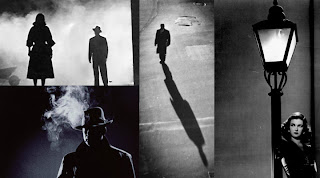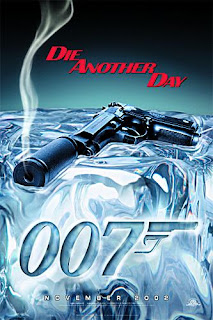(directed by Roger Spotiswoode)
Few would dispute the usefulness of easy and accessible transmitted
information from one region of the globe to another through various
media. The only possible point contention is the person or entity
exercising said transmission. He who controls the flood of information
can control a whole lot more, and such was the central issue of 007’s
(Pierce Brosnan) latest mission, which began when both Chinese MiGs and
the HMS Devonshire were attacked at sea, with each country accusing the
other of belligerency. The first media outlet to cover the story was the
Elliot Carver (Jonathan Pryce) owned newspaper, The Tomorrow. It seemed
to many that the story leaked just a bit too fast, a bit too early. How
did Carver get his information so quickly and what have he to do with
this international incident? Time was of the essence as communication
between Great Britain and China heated up, with the potentiality of war
growing by the minute.
007 was commissioned with the
investigation of Carver and his enterprise during the latter’s much
hyped about launch of a 24 hour news television station to take place in
Hamburg. It was there that our agent came in contact with a former
flame, Paris (Terri Hatcher), now Carver’s wife, as well as the
beautiful Wai Lin (Michelle Yeoh), an Chinese secret agent posing as a
journalist seeking an exclusive interview with media mogul. Bond’s
snooping, running and shooting shed more and more light on his target,
thus making it abundantly clear that the British ex-pat did indeed have a
hand in the international incident, aided by a techno wizard named
Gupta (Ricky Jay). His goal? To increase television ratings as well as
newspaper and magazine readership. Control the content by creating it. The euphoria felt by the fans as a result of
Goldeneye was
always going to be difficult to live up to. Having one Bond film in
which the story deals with the post-Cold War world is one thing, but if
the producers were going to make more films, and we all knew they would,
new ideas for threats would have to created again and again. What could
be considered a danger to the world? It needs to be plausible both in
the world of James Bond and in our real world. The Roger Spotiswoode
directed
Tomorrow Never Dies does address a fascinating issue
that many do indeed consider to a problem: the domination of news media
by a select few. After all, when so much information is selectively
delivered by so few, it is understandable for certain ethical to arise.
























































